Hezbollah Drone Penetrates Israeli Airspace, Warplanes Buzz Beirut
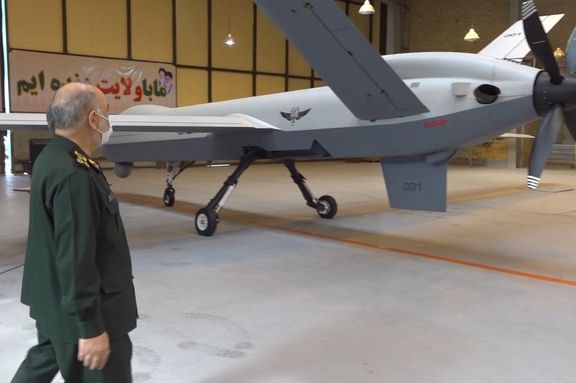
A drone flown by Lebanese militant group Hezbollah crossed into northern Israel on Friday, triggering air defenses and the scrambling of fighter jets.

A drone flown by Lebanese militant group Hezbollah crossed into northern Israel on Friday, triggering air defenses and the scrambling of fighter jets.
The drone apparently returned to Lebanon but it is not clear how long it (video).
Iran-backed Hezbollah, which fought a month-long war against Israel on the Lebanon border in 2006, said Friday's flight was a 40-minute reconnaissance mission. Earlier this week, it said it had started producing its own drones in Lebanon.
Hours later and roughly 100 km to the north, a thundering roar was heard in the Lebanese capital Beirut caused by Israeli planes passing in the lowest overflight in years, according to many videos recorded by residents.
On Wednesday, Hezbollah chief Hassan Nasrallah said in a televised speech that his group has the ability to convert rockets into precision missiles with the help of "experts from the Islamic Republic."
Israel's military said Hezbollah's radio-controlled drone had set off air raid sirens in the Galilee region of northern Israel warning residents to take cover.
"Aerial defense systems identified and tracked the threat along with helicopters and fighter jets that were dispatched," it said, adding that its Iron Dome defense system had tried to intercept the drone but it made it back.
On Thursday, Israel said it had downed a drone that belonged to Hezbollah after it crossed into Israeli air space.
With reporting by Reuters
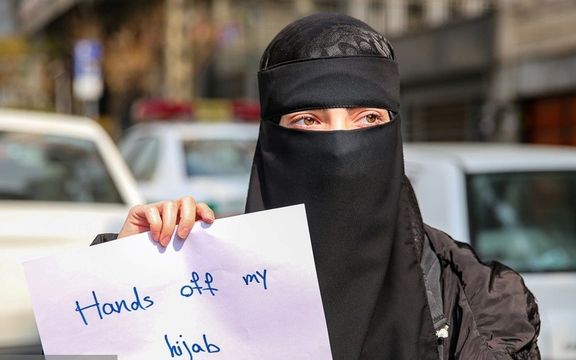
Tens of Iranian students staged a protest outside the Indian embassy in Tehran to protest a ban on hijab in colleges in the southern Indian state of Karnataka.
The students also issued a statement calling on the Iranian authorities to take measures against the new law by the Indian government.
The Bharatiya Janata Party (BJP), which runs the governments in Karnataka as well as control the national government, has for decades campaigned for the application of a Uniform Civil Code (UCC), which some minorities believe would be tantamount to the imposition of Hindu laws.
The Iranian students who participated in the state-sponsored rally described the new hijab restrictions as discriminatory against Muslims and called it a violation of the basic human right to freedom of clothing. However, it is decades that the Islamic Republic has imposed its compulsory hijab rules and anyone who dares to protest will face persecution or heavy-handed jail terms.
Choosing which clothes to wear is an important part of expression as confirmed under Article 19 of the Universal Declaration of Human Rights.
More than four decades after the Islamic Revolution of 1979, there is still much resistance to the prescribed standards of hijab promoted by the state, which many women refuse to accept even at the cost of being arrested, fined or even lashed.
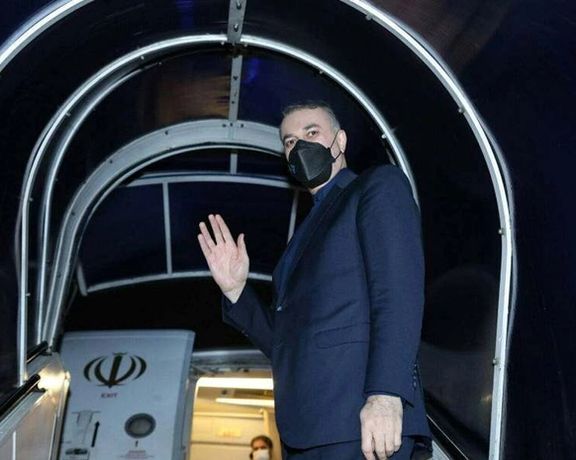
Iranian Foreign Minister Hossein Amir-Abdollahian left Tehran Friday morning for Germany to participate in the 58th Munich Security Conference (MSC).
Amir-Abdollahian is set to join many world leaders who have converged for the three-day event annual security gathering, known as "Davos for defense", which kicks off on Friday at the luxurious Bayerischer Hof hotel in Munich.
The weekend conference will be dominated by the Ukraine crisis, but the event serves as a platform for other global issues.
Roundtables on Saturday, the main day of events, will also address the fate of the Vienna talks to revive Iran’s nuclear deal with world powers and the fragile security situation in the Sahel.
Both issues have flared up this week with reports about the finalization of a new US-Iranian deal and the French withdrawal of troops from Mali after almost a decade fighting Islamist insurgents.
Over the weekend there will also be high-profile panels on cryptocurrency, climate change and the pandemic.
The chairman of the conference, Wolfgang Ischinger, has told reporters that he could not recall a time when there were "so many overlapping crises".
This is the first no-show by a Russian delegation in years, highlighting how much East-West relations have deteriorated.
The official agenda of the Iranian foreign minister is not announced but much of the action is likely to take place on the sidelines of the main stage.
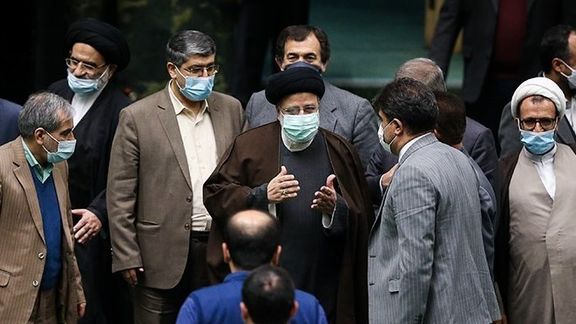
Parliament has dealt a blow to the Iranian government’s plan to balance the budget by refusing to ditch indirect food subsidies, fearing a public backlash.
The parliament’s move earlier this week has been described as the most serious confrontation so far between the parliament and President Ebrahim Raisi.
According to the news agency of the Iranian parliament, ICANA, Hamid-Reza Hajibabaei, the chairman of the budget committee of the Majles has said that the parliament has stood by the nation by not letting the government to stop providing cheap dollars to importers for essential commodities such as wheat, sugar and meat.
In January, parliament had already indicated its opposition to scrapping the subsidy.
Iran has spent between 8-14 billion dollars a year since 2018 to offer importers the cheap dollars. This has been a tremendous burden on its finances since US sanctions stopped most of its oil export earnings in dollars. The Raisi government wants to end the practice to balance its budget, but lawmakers say this will boost the already high rate of inflation and could cause unrest in the country.
A nuclear agreement with the United States and an end to oil sanctions can boost revenues and enable the government to keep the indirect subsidy.
In its leading frontpage report, reformist daily Sharq wrote that Planning and Budget Organization Chief Massoud Mirkazemi who went to parliament on Monday to justify the elimination of the preferential rate of exchange came out of the Majles at the close of business tired and frustrated.
One of the lawmakers who supported the elimination of the preferential rate in the next year's budget, was Alireza Abbasi, the chairman of the Agricultural Committee of the Majles who believed that doing so, will be in the interest of producers of agricultural goods in Iran. He said there are so many loopholes in regulations and traders use them to benefit from the preferential rates while some 80 percent of agricultural producers can never use the advantage.
According to Sharq, Ali Rezaei, the spokesman for the budget committee explained that the reason for the committee's opposition is that it could lead to social and security problems, meaning that doing away with the preferential rate will lead to an increase in prices that could bring about widespread protests.
He said the Majles has asked the government how it can guarantee that the elimination of the subsidy will not lead to social problems and make life difficult for the people, and the government answered: "Inshallah, God Willing, there will be no problem!" Rezaei added that Majles remains concerned about the problem and its impact on low-income people.
Budget Committee Chairman Hajbabaei on Wednesday described the decision as a determining one. "This is the country's most important problem, and many Iranians are concerned about it." He added that "the committee has approved allocating$9 billion dollars in the budget for next year. MirKazemi has said earlier that in the current year there was $8 billion dollars in the budget for purchasing essential commodities, but that amount finished well before the end of the year.
Meanwhile, figures released in September showed prices for essential commodities rose 150 percent, which means doing away with the preferential dollar rate could lead to more price increases.
Sharq has described the difference between the parliament and the government as the first dispute between President Raisi and Majles Speaker Mohammad Bagher Ghalibaf and similar to past instances, Supreme Leader Ali Khamenei will have to intervene to end the dispute. There is still time before the final vote at the Majles on the budget. In the meantime, by leaning to either side, Khamenei will reveal his favorite politician between Raisi and Ghalibaf.
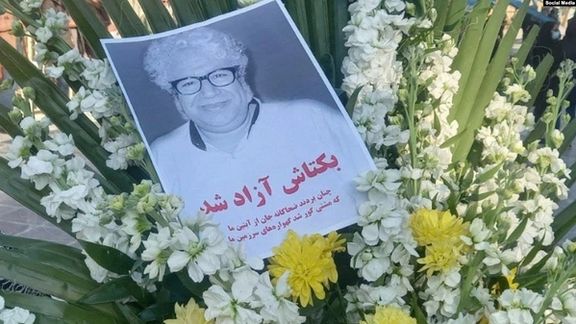
Persian-language television channels Iran International and Voice of America Thursday aired a documentary about the life of Baktash Abtin, an Iranian poet who died in custody in January.
The documentary was made by award-winning filmmaker Mohammad Rasoulof, himself arrested several times and had his passport confiscated. It aired Thursday evening Tehran time.
Earlier in the day, security forces disrupted ceremonies marking the 40 days since Abtin died of Covid-19 complications following a medically induced coma after he was denied timely treatment by officials at Evin prison, Tehran.
Abtin died in hospital after he was transferred there from prison.
The film, "Intentional Crime," related the life story of the filmmaker and poet through conversations with his friends and family, and examined his final days in jail. Abtin was sentenced to six years in prison in 2019 after conviction for “illegal assembly and collusion against national security" and "spreading propaganda against the state." He had published documents about the history of the Writers’ Association and made comments about censorship.
Some prisoners wrote an open letter in January portraying Abtin’s death as the continuation of the so-called “chain murders,” a series of killings in 1988–98 carried out by vigilantes with links to Iranian intelligence. The letter attacked “inaction” by international human rights organizations over his case.
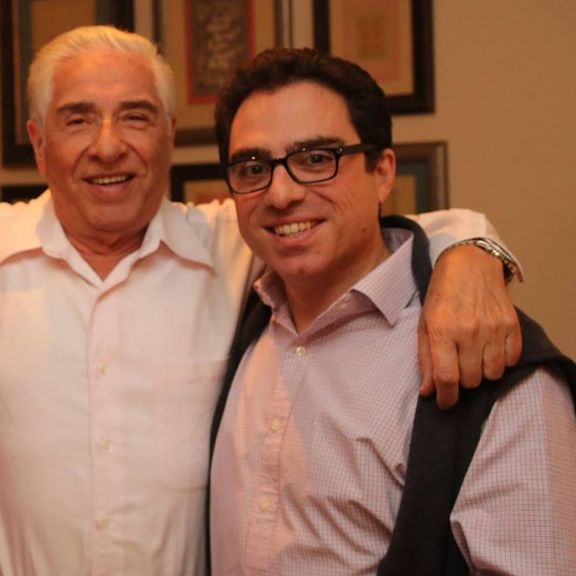
A website in Tehran has published an article by Siamak Namazi, an Iranian American jailed in Iran since 2015, amid news that Iran and the United States are holding talks for a possible prisoner exchange.
The article titled "Why Can't We Win the Trust of Iranian Expatriates?", appeared in Ensaf news and elaborated on reasons why the Islamic Republic has failed in its efforts to convince Iranians living abroad to return to their country.
"Despite all enthusiasm shown by various administrations to attract Iranian expats and use their huge political, scientific & economic capacities, none of them has achieved any success. On the contrary, Iranian expats have given the Raisi administration and its warm invitations the cold shoulder,” Namazi wrote.
News emerged from various sources on Thursday that the US and Iran have been holding talks parallel with nuclear negotiations in Vienna over the faith of Westerners held in on trumped-up charges.
After Siamak Namazi's arrest, his elderly father traveled to Iran in 2016 to help him but he was also detained on vague accusations, like his son who was accused of collaboration with a foreign country.
"Iranian officials have rather increased the mistrust. For instance, the Rouhani administration implemented plans to improve its ties with expatriates, but certain security forces interpreted it in a very negative way. And the heavy price was finally paid by dual nationals and their families."
Namazi added that expats will not simply trust officials who claim all barriers for their return have been removed, while they fail to recognize existing risks.